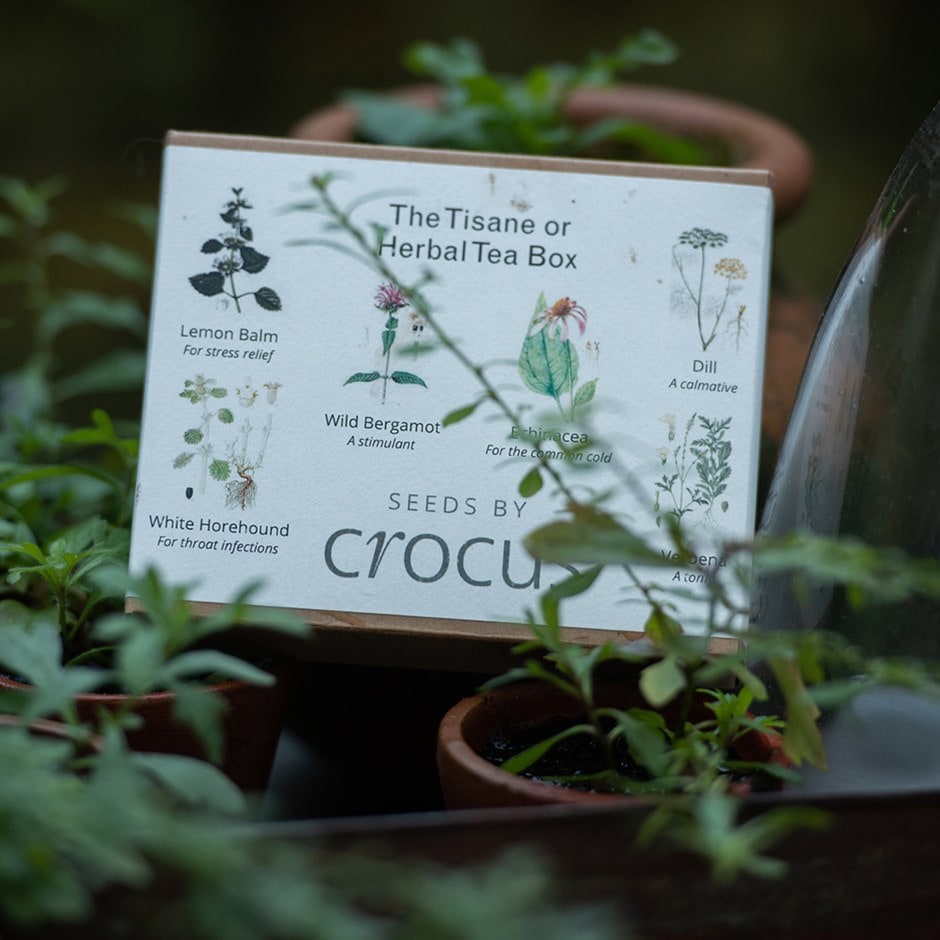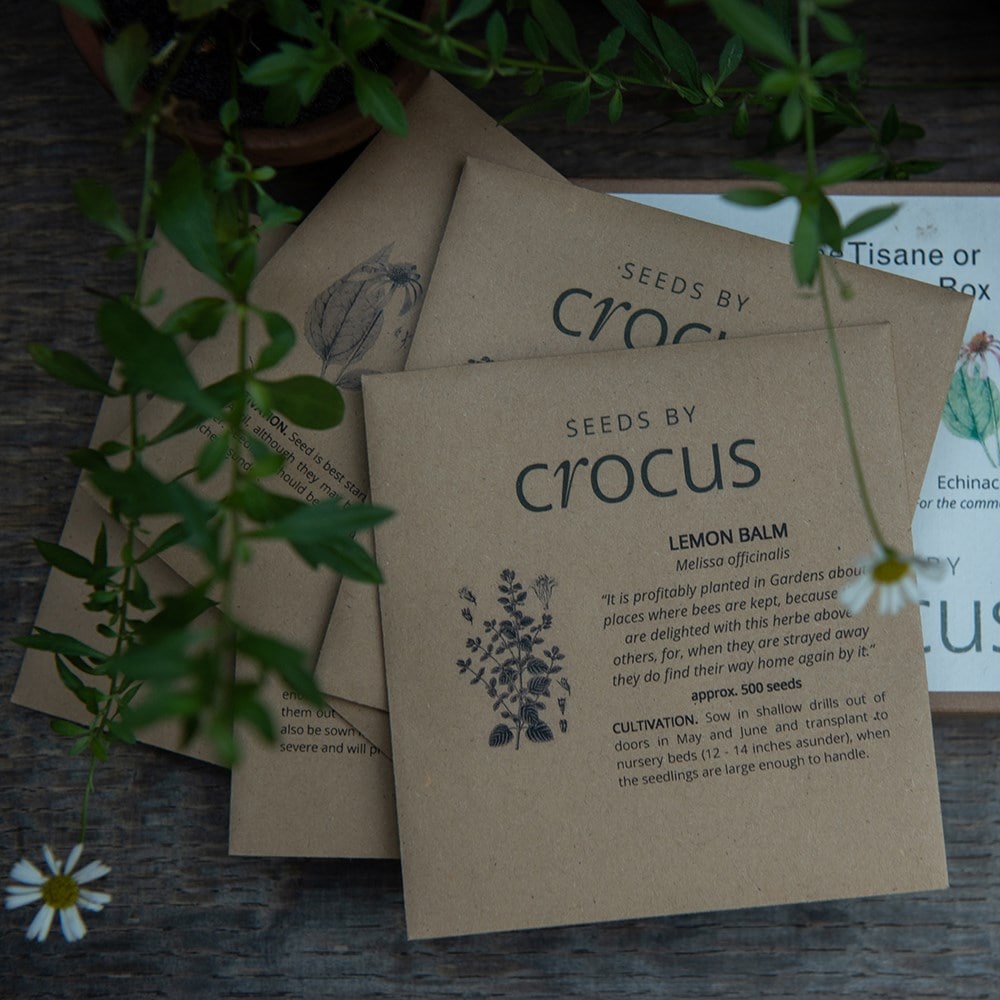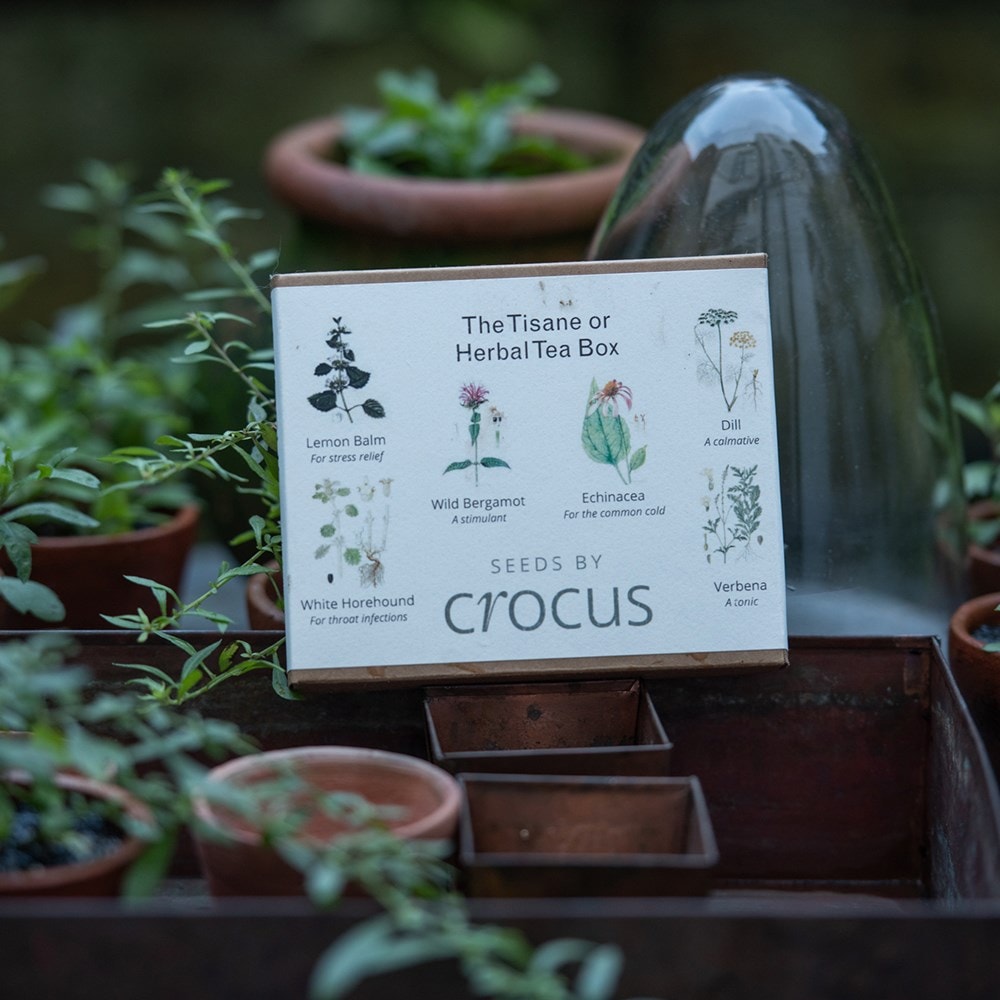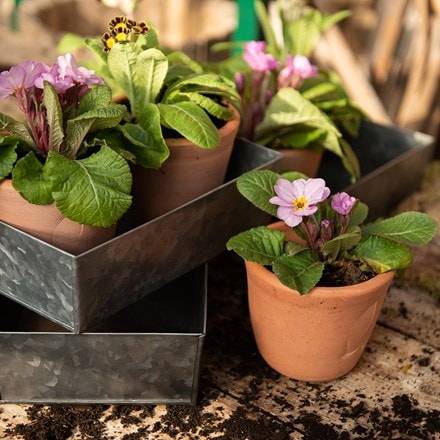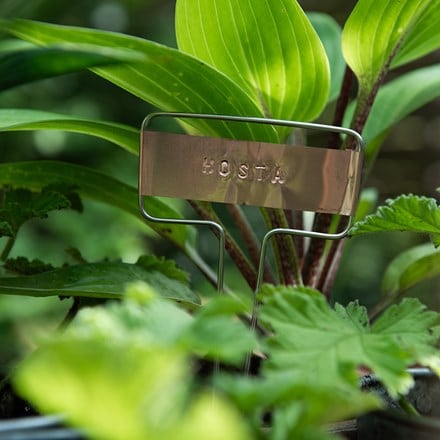Herbal teas seed gift box
Tisane or herbal teas
- gift set
- £19.99
- In stock (shipped within 3-5 working days)
Delivery options
- Seed Packets (only) £2.95
- Position: Full sun
- Soil: Moderately fertile, moist but well-drained soil
- Rate of growth: Average to fast
- Hardiness: Fully hardy /ul>
- Lemon balm (Melissa officinalis): Claimed to have antiviral and antibacterial properties, the leaves of this bushy, perennial herb will release a strong lemon fragrance when they are bruised. They are useful for creating calming teas, lemon balm pesto or flavouring drinks (like Pimms) fruit or fish dishes. The crushed leaves are also said to help keep mosquitoes at bay when they are rubbed onto the skin, which appear in summer, are a firm favourite of bees. Grows to 2m.
- White horehound (Marrubium vulgare): A slowly spreading, grey-leaved herbaceous perennial plant from the mint family. Small white flowers are borne in dense whorls around the upright, square, woolly white stems in summer. Used to treat mild throat and digestive discomforts. Grows to 0.5m.
- Wild bergamot (Monarda fistulosa): Employed medicinally by several native North American Indian tribes who used this bushy, branching perennial to treat a variety of complaints especially those connected with the digestive system. The mid-green, lance-shaped, aromatic leaves are used in modern herbalism as a stimulant and to soothe sore throats. From mid-summer, whorls of tubular, pale purple or pale, dusky pink flowers with purple-tinged bracts appear, popular with pollinating insects. Grows to 1.5m.
- Coneflower (Echinacea pallida): Large, pale pink, daisy-like flowers with prominent, burnt orange centres appear from July to September. Herbalists recommend echinacea to help boost the immune system and help the body fight infections. Grows to 1.25m.
- Dill (Anethum graveolens): An annual herb in the celery family commonly used to flavour food. The fine, feathery foliage and stems are also of medicinal benefit and are thought to help aid digestion, reduce inflammation, and have a calmative effect when used as a herbal tea. Grows to 0.5m.
- Verbena (Verbena officinalis): An erect, branching, perennial herb with hairy, deeply lobed leaves producing wiry spikes of numerous tiny pale purple flowers. Used medicinally as a calmative tonic and to alleviate a variety of conditions including insomnia and mild depression. Grows to 1m.
- Growing instructions:Each individual brown paper hand filled seed packet comes complete with growing instructions specific for each species.
A collection of 6 herbal tea (tisane) plants' seeds in a beautifully illustrated gift box.
Beautifully designed and containing a mix of beneficial plant seeds this wonderful collection is an ideal gift for a budding gardener that is looking to start a small herb garden with commonly grown, herbal and recuperative plants from seed.
Beautifully designed and containing a mix of beneficial plant seeds this wonderful collection is an ideal gift for a budding gardener that is looking to start a small herb garden with commonly grown, herbal and recuperative plants from seed.
In this selection you will receive 6 individual seed packets, typically containing one each of the following varieties within a sturdy, illustrated cardboard gift box:
